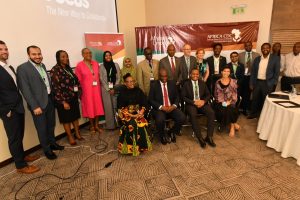Dr Amoth made the remarks on Monday when he officially opened a week long regional (East Africa) workshop to strengthen Mental Health and Psychosocial Support (MHPSS) integration into national emergency preparedness and response plans.
The DG noted that social and psychological effects of emergencies are evident across all social levels saying some degree of mental or emotional distress contributes to worsening of existing mental illnesses or drugs and substance use.
Dr Amoth further told the meeting that a public health model is critical to address short and long term mental health as well as psychosocial consequences resulting from COVID-19
“In our region, this situation is worsened by the disruption of services on offer for mental, neurological and substance use disorders which was evident during the COVID 19 pandemic,” he added.
Dr Amoth further told the meeting that a public health model is critical to address short and long term mental health as well as psychosocial consequences resulting from COVID-19 as well as other emergencies.
He said the model requires an integrated approach that considers all aspects that play a role in the wellbeing of an individual even as he emphasised on the need to design mental health and psychosocial intervention strategies that take into account the medium and long-term effects of emergency situations.
This he says has seen the Ministry of Health prioritize mental health and psychosocial support as critical pillars in the National COVID-19 response and recently in National Ebola Preparedness and Response.
The workshop, organized by Africa Centre for Disease Control in collaboration with the Regional Coordinating Center (RCC) for the Eastern Africa Region, has drawn participation from Africa CDC, mental health focal persons from the 14 Member States in the Eastern Africa region, emergency preparedness and response focal persons/Incident managers from the 14 member States as well WHO, IGAD, EAC, UNICEF, UNHCR among others.
Distributed by APO Group on behalf of Ministry of Health, Kenya.







OTHER ARTICLES
Editorial — Prevent, inform, and act for women’s health in Africa
Kenya : Government Prioritises Maternal Health and Strengthens Support for Community Health Promoters
Strengthening pandemic prevention, preparedness, and response capacities in Senegal using the “One Health” approach